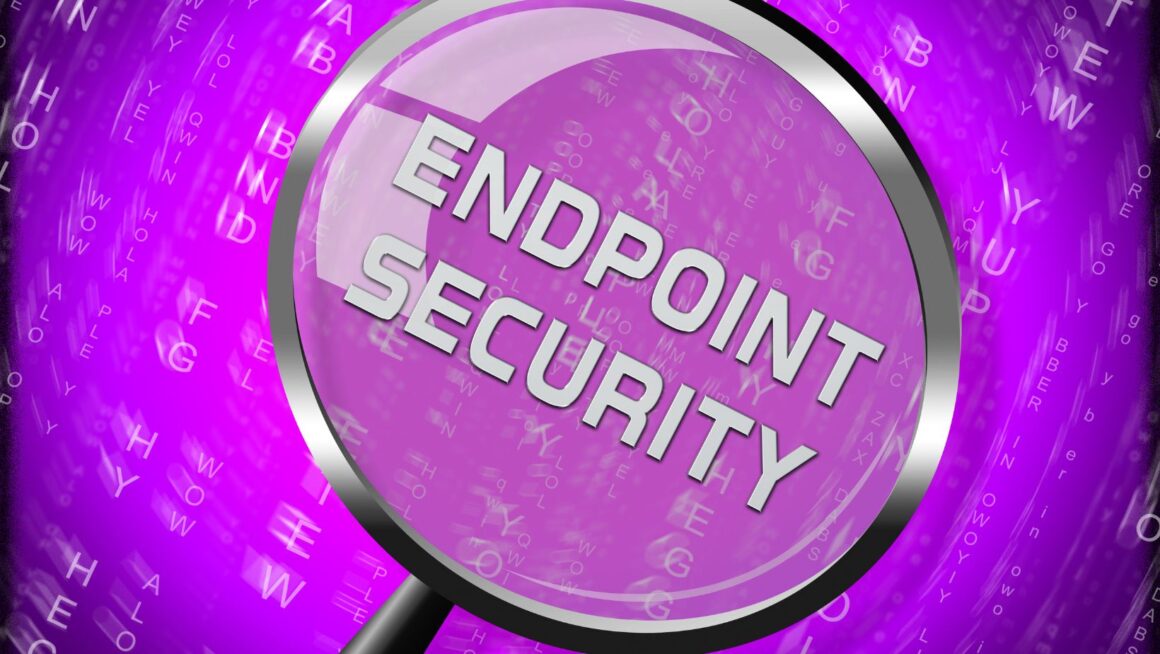The presence of endpoint security in the modern world has taken on increasing importance because of how heavily we all rely on our devices. From work laptops to gaming desktops and, of course, the omnipresent smartphone, there is heavy usage, with people spending an average of over four hours per day on their phones.
Time spent on devices means that people are more remote than ever. Remote work has boomed within the last decade, with more than 36 million Americans expected to be working remotely by 2025. But given the horror stories of hackers, ransomware, and phishing that pop up in the news every day, users need to take the protection of their devices very seriously, and here, we will look at how that can be done.
Endpoint Security Explained
Endpoint security is the devices that end-users operate, which can be anything from a tablet to a desktop computer. Because the modern world leaves everything connected to the Internet or cell phone networks, end-users must do all they can to protect their devices from cyber threats.
Typically, attacks by malicious actors are not necessarily targeting one specific device, they are bombarding networks to find a vulnerable device they can breach, which can be anything connected to the Internet—from consoles to smart thermostats. Below are some ways that devices can be protected.
The Need for Protection
Devices are essentially the entry points for hackers. They are used by bad agents to gain access to sensitive data; as long as they can break through to one device, all other devices on that same network are immediately at risk.
So, every device is a potential weak point, and because we store so much of our lives online, it’s essential to keep them locked down as tightly as possible. You shouldn’t be making life easy for any wannabe attacker, and prioritizing endpoint security on devices goes a long way to dealing with this issue.
Avoiding External Devices
If you find a random USB drive on the street, the last thing you should do is plug it into a computer that’s hooked up to the Internet. It’s an extreme example, but people still put too much trust in unknown external devices like that—mostly out of curiosity and a lack of understanding about the risks.

In much of a similar vein, running devices on unsecured networks can leave them open to attack. Public Wi-Fi and hotspots are very weak for security, and doing anything where personal information is required to log into an account should be avoided without adequate protection.
VPN
A VPN (virtual private network) is a common tool that helps with online privacy and security because it will mask the real IP Address you are connecting from. This is important for preventing websites from being able to track your online activities.
A VPN is essential when using public Wi-Fi because it creates a tunnel for your connection that will shield you from anyone trying to spy on what you are doing. They are also excellent for remote workers getting a secure connection to a company’s main server.
Firewalls
Think about how much personal information is shared from your device. It’s where you do your online banking and shopping. It’s where bettors open accounts and explore online betting sites, including making deposits and withdrawals with sensitive information. Having a firewall controlling traffic is a must.
Firewalls are a barrier and can be thought of as security guards that keep an eye on your incoming and outgoing traffic. Firewalls run on a set of rules and then allow or block traffic through based on those rules. They are extremely useful protection tools against anything from unknown sources, making it through, and are an essential part of a device’s protection. After the initial installation, a firewall will sit quietly in the background and do its business.
Antivirus and Anti-malware
Most people should have heard of antivirus and anti-malware software as they are one of the most common types of endpoint security. Antivirus software provides real-time protection against various types of threats as it will look for any harmful programs on your device that shouldn’t be there. Antivirus checks files and programs on the device to ensure they haven’t been compromised, while anti-malware programs check for malicious software or behavior, and both will automatically quarantine threats to help keep the device secure.
Endpoint Detection and Response
After the installation of endpoint detection and response (EDR), a system will be constantly monitored for intruders.

It’s a newer technological way of protecting systems because it initially monitors and will raise an alarm if something strange is happening. The software then responds by blocking the malicious activity or at least notifying the user that it thinks something is going on.
Keep Updated
An essential point of endpoint security is for the user to keep devices up to date. These are patches specifically designed to plug any holes in security, and regularly updating operating systems will help to keep things secure—it’s worth having this set to automatic.
Work On Zero Trust
Cyberattacks happen. They can and have happened to some of the biggest tech companies in the world. End users can improve security online—from using the right security software to simple acts of diligence in not clicking links in unknown emails or sharing personal data. A simple rule of thumb when online is “caution first”.




